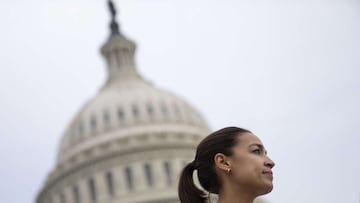How many people will lose unemployment benefits in September?
Congress has departed Washington as more than nine million people are slated to lose unemployment benefits if the September deadline is not extended.


In mid-July 2020, the United States was in the throws of confronting the second wave of covid-19 infections, and more than 30 million people were claiming unemployment benefits. Just two weeks ago, the total number of people reported to be receiving benefits had dropped by more than half to 13.2 million.
When the pandemic took hold in the United States back in March 2020, Congress quickly passed the CARES Act, which made significant changes to unemployment insurance. The tens of millions who lost their jobs benefited from these new programs:
- Pandemic Unemployment Assistance (PUA), which provides unemployment benefits “to individuals who are self-employed, seeking part-time employment, or who otherwise would not qualify for regular unemployment compensation.”
- Pandemic Emergency Unemployment Compensation (PEUC), allowed those eligible to receive unemployment compensation, additional coverage as many states have a cap on the number of weeks claims can be made. This program also provides a $300 topper sent by the federal government in addition to state benefits.
How many people claim benefits under these programs?
As the delta variant drives the fourth wave of infections in the United States, many experts believe that job growth will have slowed in July and the trend could continue through August. However, concerning to many beneficiaries and experts is that all federal programs are set to expire on 6 September, which could leave millions without an income.
US hiring in July was softest among states that ended federal unemployment benefits early, and where the COVID-19 Delta variant is raging.
— Heather Timmons (@HeathaT) August 3, 2021
https://t.co/bLxcR3zugt
Around this time last year, just under 32 million people were claiming unemployment benefits from their state. This number has since dropped to around 13.2 million. Through state governments, about 3.2 million people are still receiving benefits.
As for federal programs, PUA, and PEUC, around 10 million unemployed workers continue to claim benefits.
For PUA there are currently around 5.2 million people claiming benefits. While still higher than those receiving traditional unemployment compensation, the figure is down significantly from the 14.95 million people participating in the program a year ago.
PEUC, which provides additional weeks of coverage is being claimed by 4.2 million people, a major increase from the 1.2 million claimed a year ago. The number of beneficiaries of this program has increased because a year ago many were still eligible for benefits from their state governments and were not dependent on federal assistance.
Will the programs be extended?
More than half of states, most of which are led by Republicans, have already stopped the payment of federal unemployment benefits. Many leaders in these states argued that the programs were leading to work shortages and that they should be cut to encourage people to reenter the workforce. But, in states that have ended the payments, job growth is actually slower than in states continuing to pay.
Eliza Forsythe, an assistant professor and economist at the University of Illinois told CNBC that Congress should consider extending the benefits because “It’s certainly possible we could have another round of economic contraction in certain areas if there’s an outbreak.” She then said that without the PEUC and PUA program, “the unemployment system won’t be there for people the way it’s been over the past year.”
Related stories
While some progressive members have advocated for the extension and criticized the states that have opted to cut benefits, much of their focus is now on the eviction moratorium. The federal ban on evictions ended on 31 July, leaving hundreds of thousands of families under threat of losing their homes.
However, as September approaches and cases continue to rise, lawmakers may shift to advocacy related to unemployment compensation.
- Parados
- Crisis económica coronavirus Covid-19
- Población activa
- Subsidio paro
- Tasa paro
- Ciencia
- Desempleo
- Coronavirus Covid-19
- Crisis económica
- Pandemia
- Coronavirus
- Recesión económica
- Coyuntura económica
- Virología
- Epidemia
- Enfermedades infecciosas
- Empleo
- Enfermedades
- Microbiología
- Medicina
- Economía
- Trabajo
- Biología
- Salud
- Ciencias naturales

